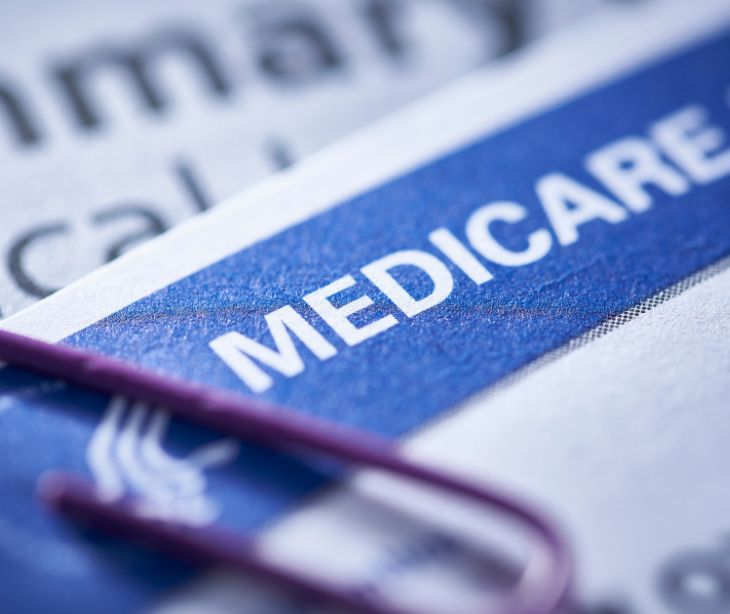2 min read
Medicare audits reveal $16 billion in potential savings
Kirsten Peremore
Jun 3, 2025 6:34:25 PM

Between October 2024 and March 2025, the U.S. Department of Health and Human Services (HHS) Office of Inspector General (OIG) identified over $16.6 billion in actual and potential savings across federal health programs.
What happened
The matter was discovered in a semiannual report released publicly to Axios on June 2, 2025. The report, which spans both the Biden and Trump administrations, revealed $3.5 billion in funds owed back to the federal government from investigations and an additional $451 million flagged in audits as recoverable. Notably, the watchdog uncovered $12 billion in potential savings if HHS implements its 165 policy recommendations.
Among the most notable findings was a potential $7.7 billion in savings if Medicare payments for swing beds at access hospitals were lowered to match skilled nursing facility rates, though this change requires congressional approval and was rejected by the Centers for Medicare and Medicaid Services (CMS). The OIG also found that many Medicare Advantage plans relied heavily on in-home health risk assessments to justify higher payments without sufficient documentation, prompting a recommendation to restrict these practices and potentially save $4.2 billion.
During this period, OIG’s work led to nearly 400 civil actions, including settlements such as McKinsey’s $650 million payout over its role in advising Purdue Pharma on opioid-related claims. John Hagg, assistant inspector general for audit services, emphasized the continued need for oversight, while Melicia Seay, assistant inspector general for evaluation and inspection, confirmed ongoing investigations into Medicare Advantage payment policies. Following former President Trump’s firing of longtime HHS Inspector General Christi Grimm in January 2025, Juliet Hodgkins stepped in as acting IG, and Thomas March Bell has been nominated to permanently lead the office.
What was said
According to Acting Inspector General Juliet T. Hodgkins in the semiannual report, “As evidenced by this report, OIG’s enforcement and oversight not only safeguard taxpayer dollars but also improve the quality and efficiency of HHS programs. While the statistics of our work are an impressive part of the story, it is our impact on the lives of nearly every American family that completes the story. No dollar value can be assigned to these results—harms to patients prevented by keeping bad actors out of Federal programs; quality services enhanced by maintaining a vigilant and exacting oversight eye; and program integrity improved to shield Federal programs from the next fraudulent, malicious attack. With sustained support, OIG is poised to continue to deliver extraordinary outcomes for the American people.”
Why it matters
Recommendations amounting to $12 billion in possible policy-driven savings could reshape Medicare Advantage and access hospital payment structures if adopted. Medicare Advantage plans relying on in-home health risk assessments to justify higher payments would face new documentation requirements. Lowering swing-bed payments at access hospitals to match skilled nursing facility rates could save $7.7 billion, although CMS has not agreed to that change and congressional approval remains necessary.
Nearly 400 civil actions, such as McKinsey’s $650 million settlement over Purdue Pharma advice, demonstrate the OIG’s role in enforcing compliance and recouping funds. Acting Inspector General Juliet Hodgkins continues to oversee ongoing reviews, while a permanent leader, Thomas March Bell, awaits Senate confirmation. The definitive outcome is that billions in funds will return to the federal government, and proposed policy changes stand ready for legislative consideration.
Related: HIPAA Compliant Email: The Definitive Guide (2025 Update)
FAQs
How does the OIG’s work impact Medicare Advantage?
The OIG raised concerns about Medicare Advantage plans receiving higher payments based on diagnoses from in-home health risk assessments that lacked supporting documentation.
Who is leading the HHS OIG right now?
As of June 2025, Juliet Hodgkins, a longtime OIG staff member, is serving as Acting Inspector General. Former President Trump removed Christi Grimm from the position in January 2025. Thomas March Bell, a Republican attorney, has been nominated as the permanent IG but has not yet been confirmed.
How effective is the OIG in terms of return on investment?
According to the report, the OIG returned $11 to the federal government for every $1 invested in its operations during this reporting period.
Does the OIG make policy decisions?
No. The OIG provides recommendations, conducts audits, and reports findings to Congress and HHS agencies. However, it does not have authority to change policy, implementation depends on HHS leadership, CMS, or Congress.




%20-%202025-01-06T184023.623.jpg)